The Best Companion Robots For Seniors
Robots are becoming increasingly popular companions, enabled by AI and robotics advancements. Companion robots can facilitate social connections and offer emotional support in many areas of life.

Imagine a world where loneliness and social isolation could be addressed with the help of a personal robotic companion. This may seem like science fiction, but it's becoming a reality, especially for a 93-year-old woman who found a friend in her robot companion. In this blog post, we'll explore the fascinating world of robots for companionship and their potential to improve our lives.
Short Summary
- Robots are becoming increasingly popular companions, enabled by AI and robotics advancements.
- Ethical considerations must be taken into account to ensure the rights of those they serve.
- Companion robots can facilitate social connections and offer emotional support in many areas of life.
The Rise of Companion Robots

Advancements in artificial intelligence and robotics have paved the way for the development of personal robots, designed to interact with us and perform various tasks in our environment. These social companion robots aim to address loneliness and social isolation by offering a robotic companion that can assist with household chores, provide emotional support, and even help care for elderly family members, particularly in elderly care settings.
As technology continues to evolve, so does the potential for these companion robots to become more human-like, capable of providing a level of human care that was once thought to be exclusive to humans. With reduced human interaction, research has shown that interacting with a companion robot can lead to decreased loneliness and even lower blood pressure.
But how did we get here, and what does the future hold for companion robots?
What are Companion Robots?
Companion robots are a fascinating blend of technology and empathy, designed to provide companionship and social interaction to humans, especially older adults and individuals with special needs. These robots are equipped with advanced artificial intelligence (AI), enabling them to perform a variety of tasks that go beyond simple automation. They can communicate with users, monitor their surroundings, and offer emotional support, making them invaluable in healthcare and social care settings.
These social robots come in various forms, from humanoid figures that mimic human gestures and expressions to bot-like designs that focus on functionality, and even animal-like robots that provide the comfort of a pet without the upkeep. Their primary goal is to address issues such as loneliness, isolation, and cognitive decline, offering a friendly presence that can make a significant difference in the lives of their users.
Benefits of Robot Companions
The benefits of robot companions are both numerous and well-documented, making them a valuable addition to many households and care facilities. Studies have shown that these robots can significantly reduce stress and loneliness in older adults, leading to improved mood and overall well-being. For instance, interacting with a robot companion can lower the need for medication and provide a sense of security and comfort.
Children with special needs also benefit greatly from robot companions. These robots can help teach essential social skills, such as making eye contact and communicating more clearly. They provide a non-judgmental and patient presence, which can be incredibly beneficial for children who may struggle with traditional social interactions.
Moreover, robot companions play a crucial role in mental health support for individuals with dementia and other cognitive impairments. They can help alleviate symptoms by providing consistent interaction and stimulation, which can improve the quality of life for these individuals. Whether it’s through gentle reminders, engaging activities, or simply being a comforting presence, robot companions are proving to be an essential tool in modern caregiving.
Artificial Intelligence and Social Robots
AI and robotics have been instrumental in developing family robots that can interact with us, recognize our emotions, and provide personalized experiences. Take the Vector Robot, for example. This AI robot can:
- Interact with family members
- Provide assistance
- Play music
- Navigate its environment with ease
With advanced sensors capable of detecting the direction of sound, Vector Robot showcases the potential of social robots that can interact with human beings in a way that was once thought impossible.
As the technology behind AI and robotics continues to advance, we can expect the integration of family robot technology to become even more capable of providing a better human-like experience. Some potential advancements in the future of personal robots include:
- Understanding our emotions
- Adapting to our preferences
- Assisting with household tasks
- Providing companionship and entertainment
The future of personal robots is truly exciting.
Addressing Loneliness and Social Isolation

Loneliness and social isolation are becoming increasingly prevalent issues globally, with around 10% of people in the UK feeling isolated regularly, and The New York Times even calling it an epidemic in the US. Companion robots offer a potential solution, providing emotional support, helping with household chores, and even offering companionship to older adults and those living alone.
However, implementing interventions involving socially assistive robots for older adults requires a user-centered design approach, involving the target users in the design process and ensuring that policies are in place to protect their rights and interests.
Although there are concerns about the effectiveness of companion robots in addressing loneliness, particularly among older participants, their potential benefits in reducing loneliness and social isolation cannot be ignored.
Features to Consider
When choosing a companion robot, it’s essential to consider several key features to ensure it meets your needs and preferences. Here are some important aspects to keep in mind:
- Artificial Intelligence (AI): A top-notch companion robot should be equipped with advanced AI capabilities. This allows the robot to learn and adapt to the user’s needs and preferences, providing a more personalized and effective experience.
- Social Interaction: The ability to engage in meaningful social interaction is crucial. Look for robots that can hold conversations, tell stories, and offer emotional support, making the user feel connected and understood.
- Sensory Stimulation: Sensory stimulation is vital for keeping users engaged. A good companion robot should provide various forms of sensory input, such as touch, sound, and visual cues, to create a more immersive and interactive experience.
- Safety and Security: Safety features are non-negotiable. Ensure the robot includes functionalities like fall detection and emergency response systems to provide peace of mind for both the user and their caregivers.
- User-Friendly Interface: The robot should have an intuitive and easy-to-navigate interface, especially for users who may not be tech-savvy. This ensures that the robot can be used effectively without causing frustration.
- Customization: Personalization is key to a successful companion robot. The ability to customize the robot’s behavior and responses to suit the individual user’s preferences can make a significant difference in its effectiveness.
- Maintenance and Support: Finally, consider the ease of maintenance and the availability of support. A reliable companion robot should be easy to maintain and come with ongoing support and updates to ensure it continues to perform optimally.
By keeping these features in mind, you can choose a companion robot that not only meets your needs but also enhances your quality of life through advanced technology and thoughtful design.
Top Companion Robots for Companionship
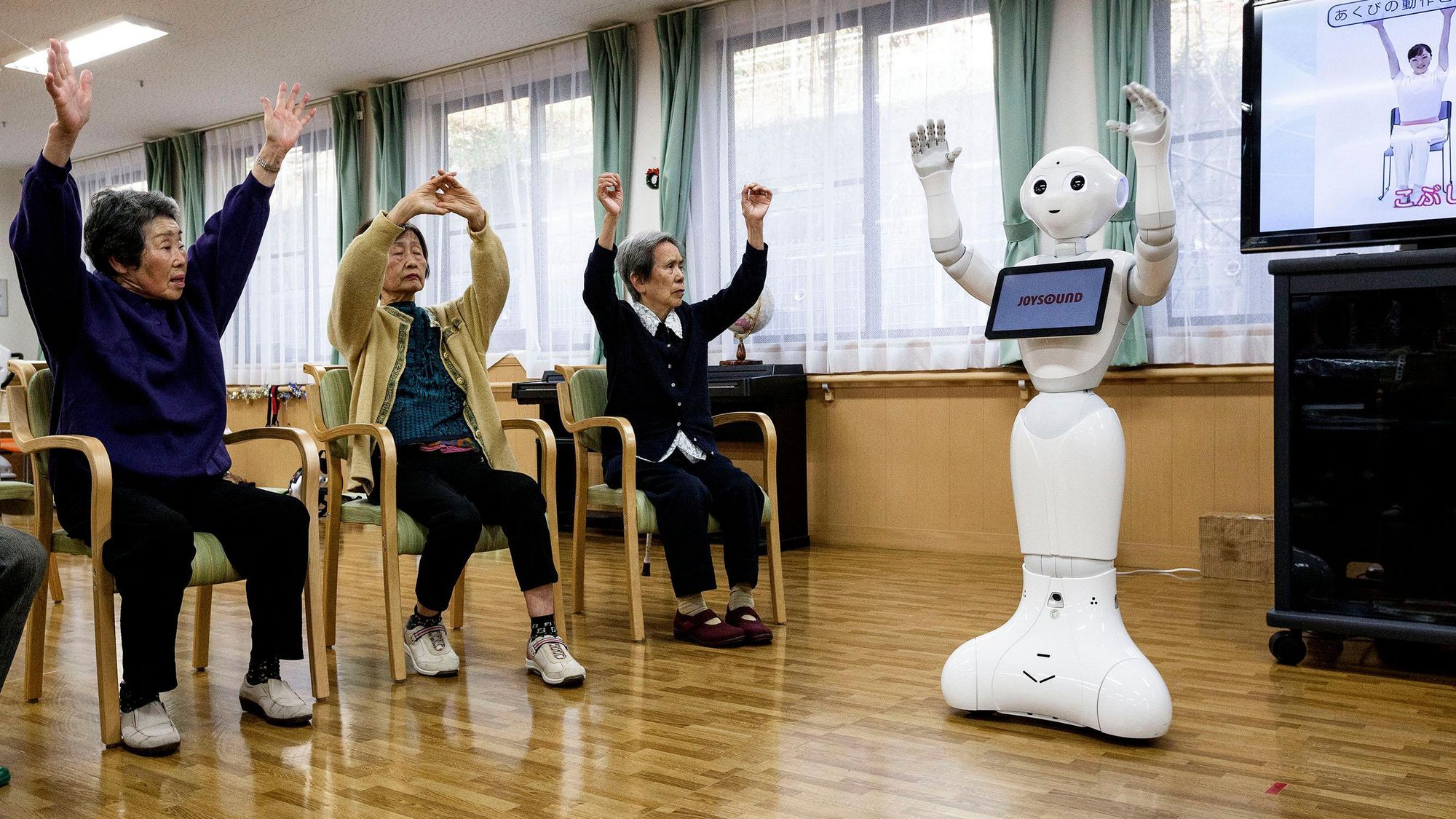
Let's take a closer look at some of the top companion robots available in the market today, each with their unique features and benefits.
Meet Buddy

Introducing Buddy, your new emotional companion robot that's here to protect, assist, and connect with you. With its wide-eyed and friendly demeanor, Buddy can offer reminders, create social connections, and even play music to brighten up your day. It's the perfect companion for seniors who may need some extra support, providing security, social interaction, and cognitive stimulation. Plus, Buddy can keep you updated with the news and important phone calls. Experience the joy of having Buddy by your side.
Meet Jibo
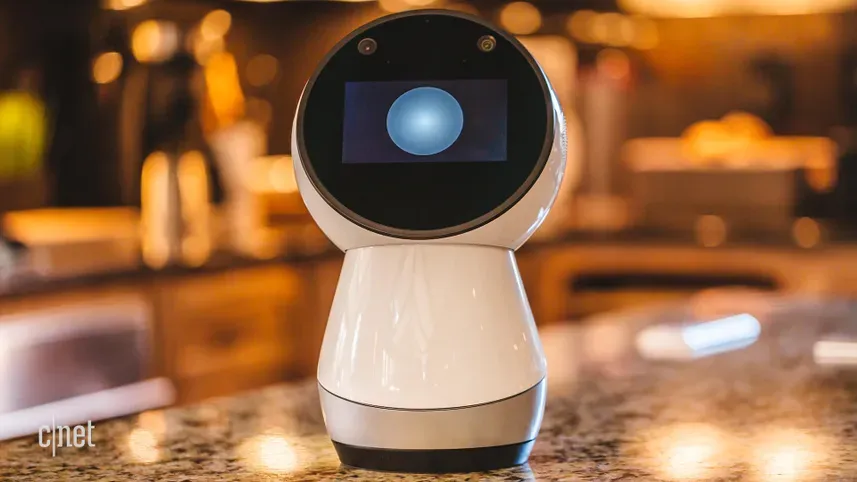
Jibo is the sleek and shiny robot that fits perfectly in your home. This visually appealing companion is equipped with sensors that allow it to interact and assist your elderly loved ones with daily tasks they may struggle with. Its advanced motor system allows Jibo to express human-like emotions through body movements, and its cameras can monitor the environment and capture special moments. With Jibo's touch screen, you can video call your loved ones from anywhere, set reminders, and enjoy interactive brain games. Never feel alone or isolated with Jibo as your companion.
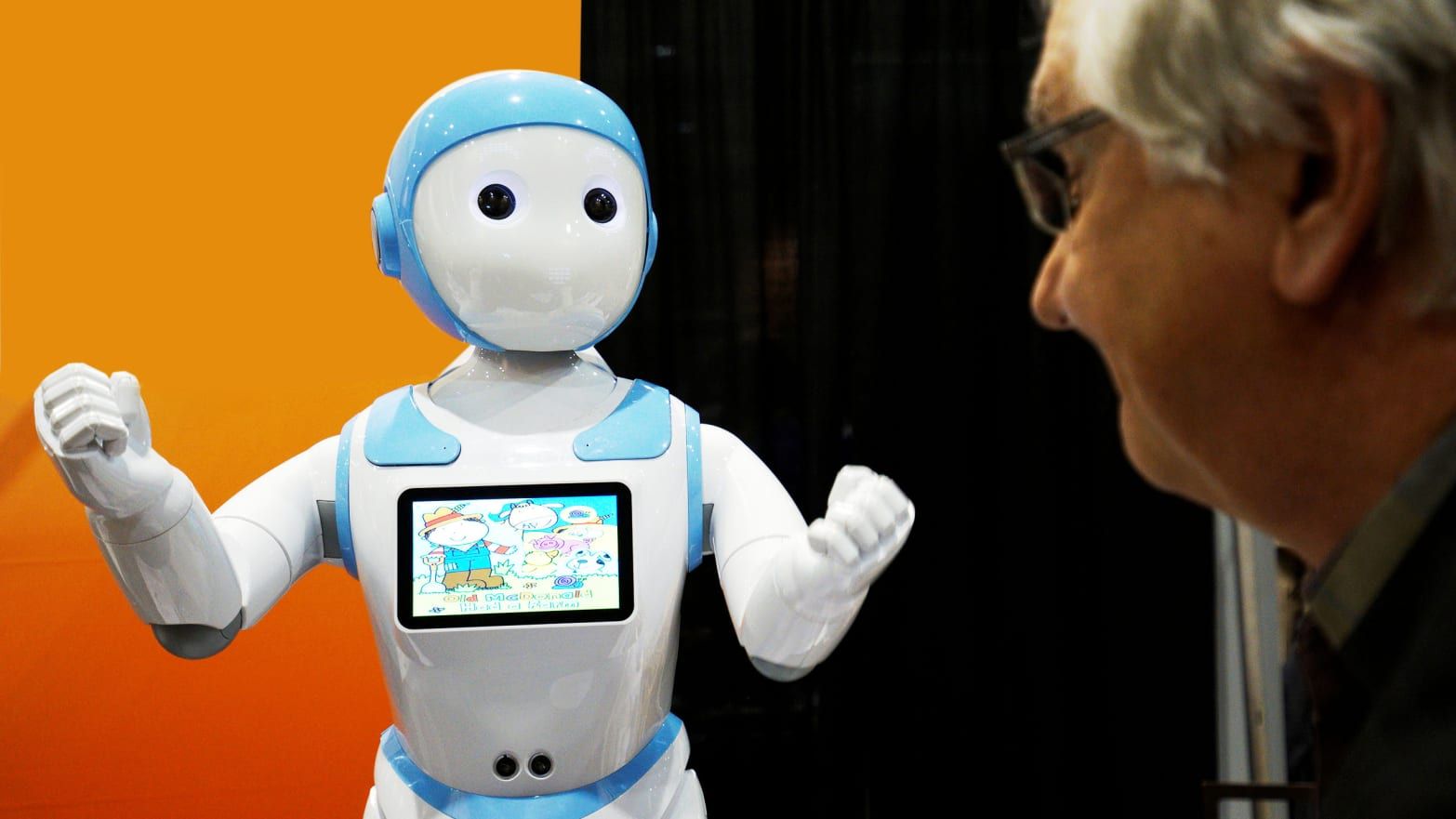
Introducing iPal, the humanoid social robot designed to serve the elderly as a companion, educator, and safety monitor. With its ability to move around your home and community, iPal offers singing, dancing, assistance with daily activities, and obstacle avoidance. Connect with your loved ones remotely and let iPal provide drug reminders, emergency alerts, conversations, entertainment, and more. With its advanced capabilities, iPal ensures that your elderly loved ones are never alone and always supported.
Meet Aido
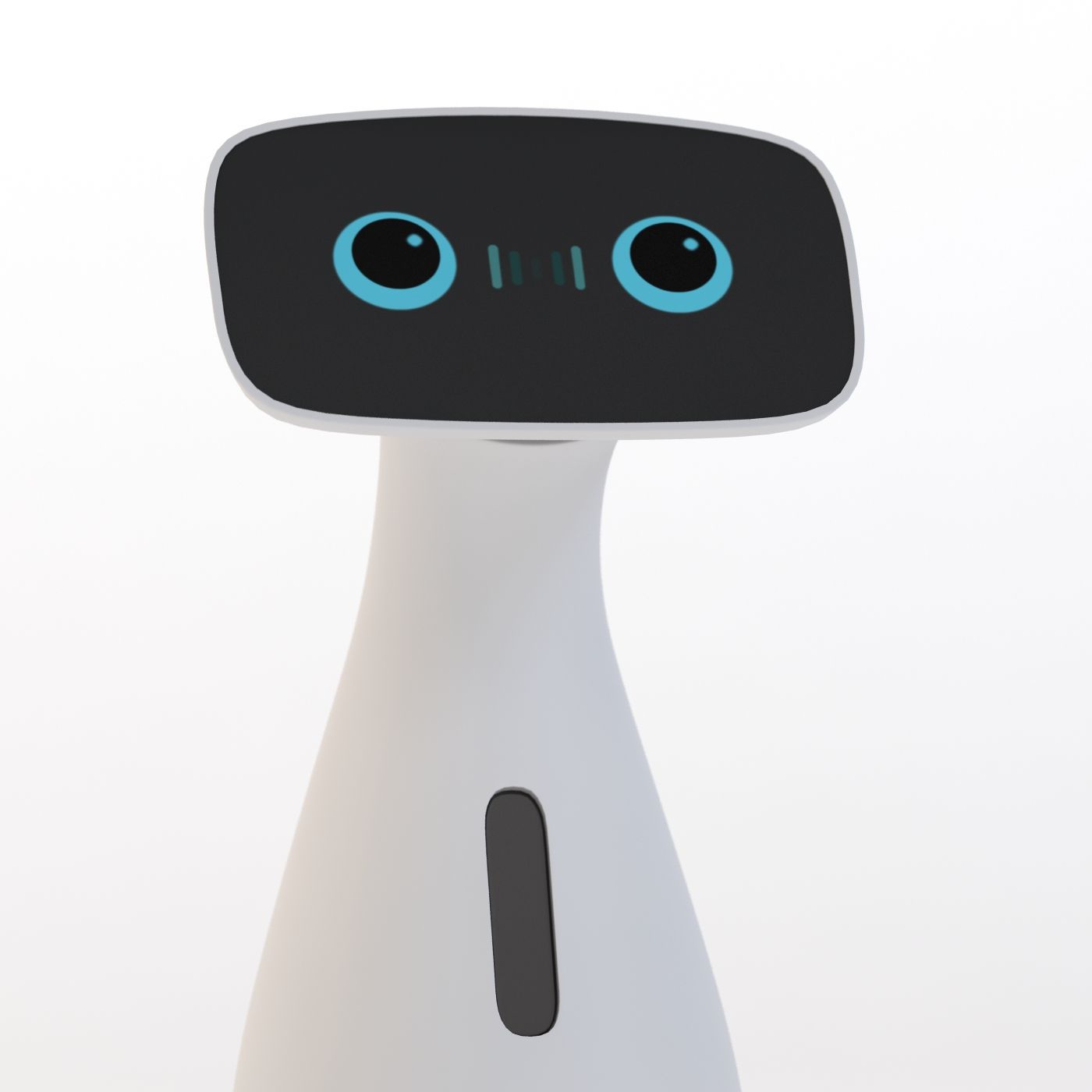
Aido is here to improve the quality of life for humans of all ages with its affordable and user-friendly robotics. This next generation service robot is designed for households, hospitality, and healthcare, making it the perfect solution for your loved ones. From handling household chores to keeping your home connected and safe, Aido does it all. Enjoy games, movies, and interactive learning with Aido's projector and speakers. Stay organized with voice control features and stay active with Aido's proactive lifestyle monitoring. Let Aido be your helpful companion.
Meet Alpha Mini
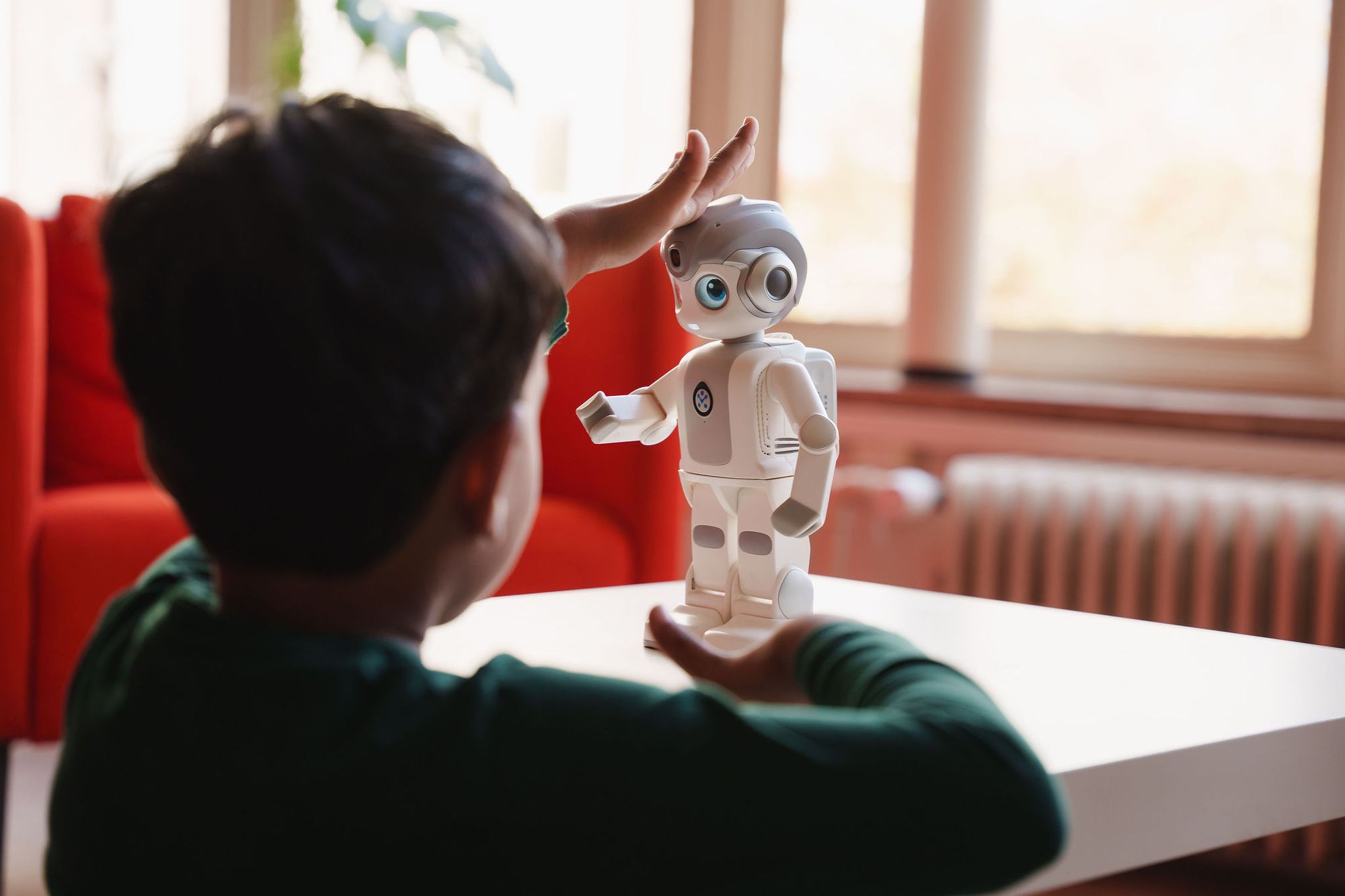
Alpha Mini is a highly portable and intelligent companion robot that brings interaction, expressions, and functionality wherever it goes. This little companion bot can dance, do kung fu, and even recognize faces and objects. With voice interaction and 4G LTE connectivity, Alpha Mini offers a wide range of features to enhance your experience. Its expressive LCD eyes make it feel like a true friend who can bring joy and excitement to your life. Say hello to the perfect little companion.
Meet EMO AI Desk Pet

Looking for a fun and engaging companion to keep you company at your desk? Meet EMO AI Desktop Pet! This little robot is designed to bring joy and entertainment to desk workers like you.
With EMO, you can enjoy face recognition, a unique character, engaging games, and voice assistance all in one adorable package. But what sets EMO apart is its ability to autonomously explore its surroundings, track sounds, recognize faces, and even dance to music, thanks to the power of AI.
But EMO is more than just a robot. Its personality is shaped by its environment and your interactions, making it a truly personalized companion. Developed by Living AI, EMO AI Desktop Pet showcases the incredible potential of AI in creating interactive and engaging personal robots.
Meet Olly Robot With Feelings Your Evolving Home Companion
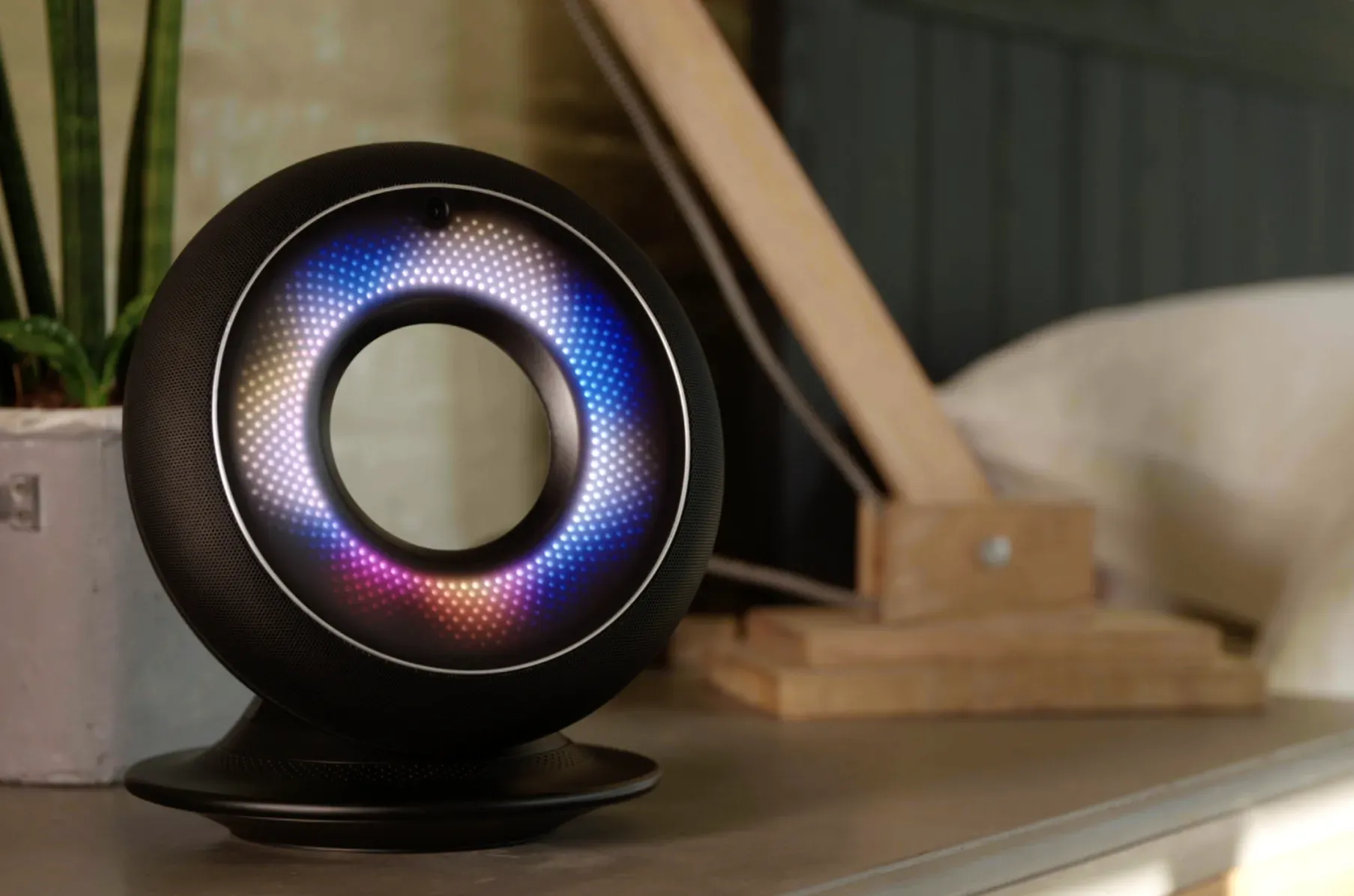
Imagine having a home robot that adapts to your individual needs and preferences. Introducing Olly Robot With Feelings, the first-ever home robot with an evolving personality. Olly's advanced machine learning technology allows him to do more than just respond to commands. He proactively assists you with your day-to-day routine, remembering your habits and setting reminders.
Created by Emotech's AI researchers and neuroscientists, Olly's AI system provides a personalized experience through emotional understanding and real-world adapting. He can understand your patterns, schedules, and even the weather forecast. Olly is not only one of the most advanced companion robots out there, but also one of the most affordable and convenient.
Meet Paro: The Interactive Robot Bringing Animal Therapy to Hospitals

Imagine receiving the benefits of animal therapy without the need for live animals. That's where Paro comes in. Paro is an advanced and interactive robot designed to reduce stress and stimulate social interaction in hospitals and care facilities.
Equipped with five kinds of advanced sensors, Paro can perceive people and its environment. It can recognize light, darkness, petting, voice direction, and even certain words. Paro also has learning capabilities, behaving in a way that the user prefers. It can remember people by their voices and adjust its behavior accordingly. You can now provide your loved ones with the comfort and companionship they need, thanks to Paro.
Meet ElliQ: Your Friendly and Intelligent Companion for Elderly Care
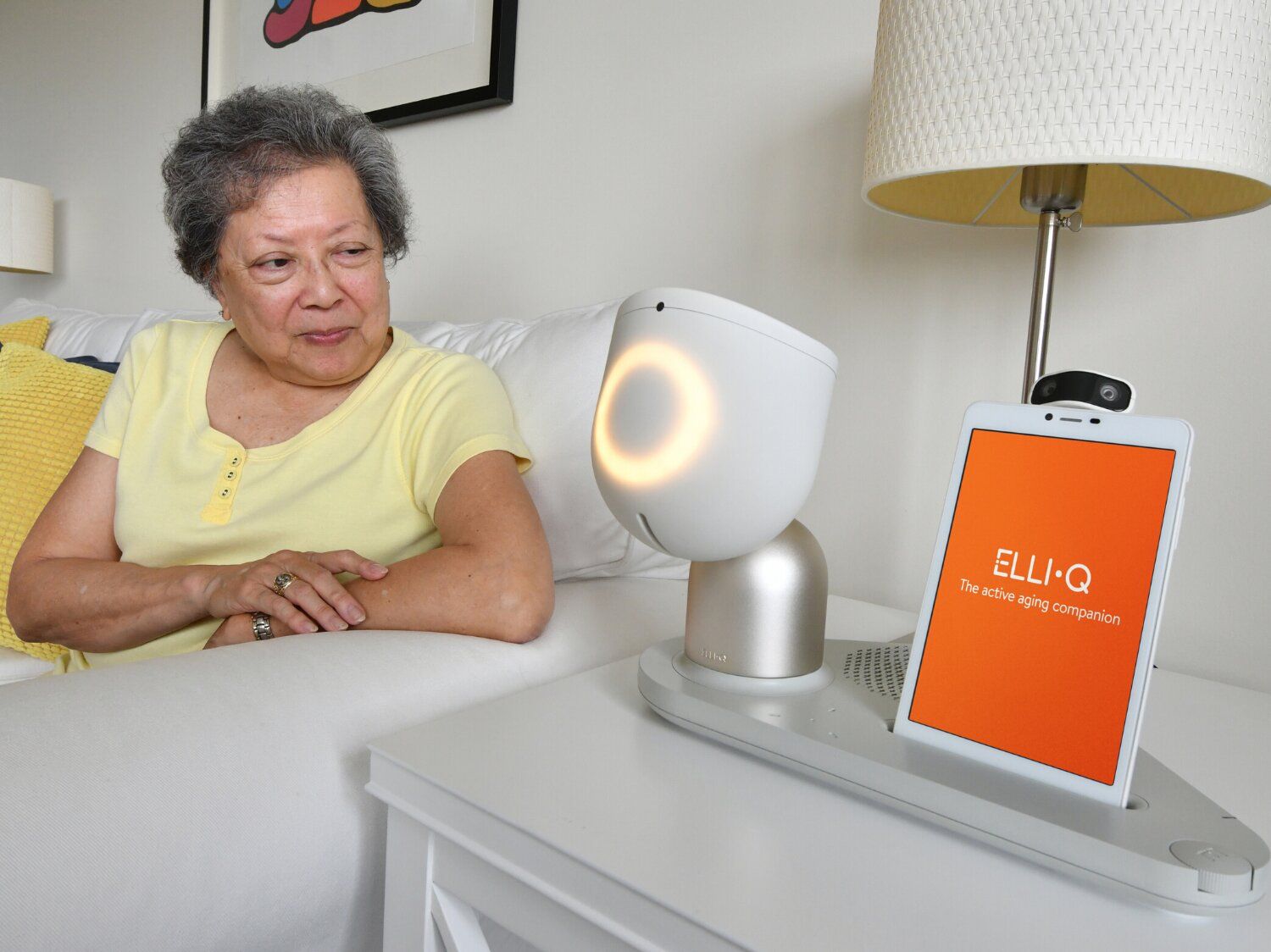
Looking for a caring companion for your older loved ones? Meet ElliQ, the friendly and intelligent companion robot specially designed for seniors. Always there to offer tips, advice, and companionship, ElliQ is dedicated to creating a magical relationship with everyone she interacts with.
With intelligent conversation, health reminders, music streaming, curated videos, and more, ElliQ brings joy and engagement to seniors. She proactively learns about each user, tailoring her activities and conversations to their individual needs and preferences. By analyzing voice, gaze, and touch, ElliQ forms a natural and personalized connection with users, helping ward off dementia, depression, and senior isolation.
Rest assured, ElliQ prioritizes your privacy and security. The team behind ElliQ has implemented top-notch security architecture to protect your data. Your information remains safe and private, as ElliQ is the only one with access to the collected information. Your loved ones can enjoy the companionship of ElliQ without any concerns about their privacy.
Meet Aibo Robotic Therapy Pet: Lifelike Companionship for Seniors
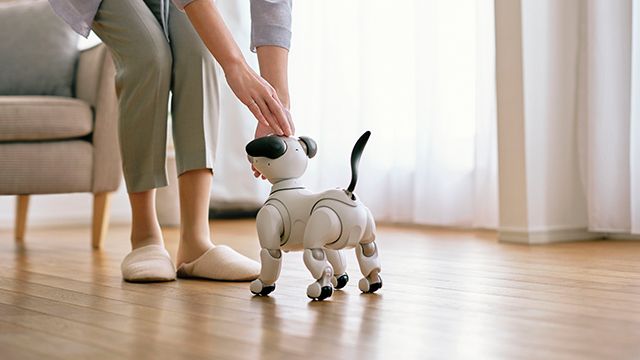
Numerous studies have shown the positive effects of therapeutic pets for seniors. With Aibo Robotic Therapy Pet, created by Sony, your loved ones can experience lifelike companionship like never before.
Aibo is one of the most advanced robot dogs, packed with technology that allows it to physically show body temperature changes and have sparkling eyes that speak volumes. Bursting with life and energy, Aibo is guaranteed to put a smile on your loved one’s face. Curiosity drives Aibo to offer new, fun, and engaging experiences over time.
Give your loved ones the joy and companionship they deserve with Aibo Robotic Therapy Pet.
Ethical Considerations and Privacy Concern
As we delve deeper into the realm of companion robots, it is crucial to address ethical considerations and privacy concerns surrounding their use. These include:
- Deception
- Moral dilemmas
- Data collection
- Security
It is also crucial to obtain written informed consent from participants in studies involving companion robots to ensure ethical compliance and protect participants' rights.
Deception is a major concern when it comes to companion robots. They are designed to interact.
Deception and Moral Dilemmas
Deception and moral dilemmas arise when users are led to believe that companion robots are real or human. This is particularly concerning in the case of dementia patients, where the use of companion robots could mislead and disorient them about the source of the voice, taking away meaningful conversations and leading to a lack of personal connection. Further empirical research is needed to understand the ethical implications of using companion robots, especially in cases involving dementia patients.
Most participants in a study were not in favor of their primary support person letting them believe a companion robot is a human if they had dementia. Navigating the ethical challenges of deception and moral dilemmas in human-robot interaction is an important aspect to consider when designing and using companion robots.
Data Collection and Security
Data collection and security concerns involve the potential misuse of personal information gathered by companion robots, as well as the risk of hacking and unauthorized access. If personal information gathered by companion robots is misused, it could lead to a loss of privacy and security for users.
There is also a risk that malicious actors could gain access to sensitive information or control the robot remotely, posing significant security threats. It is essential to use encryption, secure data storage, and user authentication to ensure data security and privacy when using companion robots.
Enhancing Human Interaction with Companion Robots

To harness the full potential of companion robots, it is important to focus on enhancing human interactions with these robots, while also promoting human contact. This involves balancing robotic and human interaction, as well as encouraging social interaction through robotics.
Robots should be designed to interact with humans in a natural and intuitive way. This could happen.
Balancing Robotic and Human Social Interaction
Balancing robotic and human interaction ensures that companion robots do not replace human connections, but rather supplement and enhance them. By setting limits on the amount of time spent with robots and actively promoting meaningful conversations and activities with robots, they can be used to supplement human interaction instead of replacing it.
When making decisions about how much robotic and human interaction is suitable, it's important to consider ethical issues like:
- deception
- moral quandaries
- data gathering
- safety
By striking the right balance, we can maximize the benefits of companion robots while minimizing potential risks and concerns.
Encouraging socialization through robotics involves designing companion robots that promote interaction with other humans, creating a sense of community and connection. Promoting socialization through robotics can offer emotional support, enhance cognitive and social skills, reduce loneliness, and improve mental health and well-being.
However, there are challenges to consider when promoting socialization through robotics, such as ethical considerations, privacy concerns, and finding the right balance between robotic and human interaction. By addressing these challenges, we can create a future where companion robots help foster social connections and improve our quality of life.
Future Developments in Companion Robots

As we look towards the future, we can expect exciting developments in the world of companion robots. This includes advances in artificial intelligence and expanding applications in various fields. Further research is needed to explore the long-term implications of companion robots on social interaction and ethical concerns.
These developments will open up new possibilities for how we interact with robots and how they can help us. Future research should focus on diverse methodologies and populations to fully understand the potential and limitations of companion robots.
Advances in Artificial Intelligence
Advances in AI will enable companion robots to become more sophisticated, adaptive, and capable of providing personalized experiences and support. Cutting-edge AI systems like GPT-3 and AlphaGo showcase the potential for AI to revolutionize the way we interact with robots and the world around us.
As AI continues to evolve, we can expect even more advanced and adaptive companion robots that offer tailored experiences and assistance, making our lives easier and more enjoyable.
Expanding Applications
Expanding applications of social robotics will see them being used in diverse areas such as:
- Healthcare: companion robots can monitor vital signs, give reminders for medication, and offer companionship to patients
- Education: they can help students learn and understand complex concepts, provide personalized instruction, and even help with language learning
- Personal assistance: offering companionship and support to a wider range of users
As companion robots continue to develop and expand their applications, we can look forward to a future where they play an even more significant role in our lives, offering companionship, support, and assistance in various aspects of life, including the ability to play games.
Summary
In conclusion, companion robots hold great promise in addressing loneliness and social isolation, enhancing human interaction, and offering support in various aspects of our lives. As technology continues to advance, we can look forward to even more sophisticated, adaptive, and personalized companion robots that make our lives easier and more enjoyable. The future of companion robots is truly exciting, and we can't wait to see what's in store for us and our robotic friends.
Frequently Asked Questions
Can a robot be a companion?
Yes, robots can be a companion. Paro is a great example of a pet-type robot system developed to provide companionship and support to elderly individuals living alone.
People may also value a robot primarily for its companionship in other contexts.
What robot helps with loneliness?
Paro, the baby robo-seal, helps with loneliness by providing comfort and reducing stress hormones. The FDA has even approved it as an insured cost for patients with depression and anxiety.
What are some of the top companion robots available in the market today?
Four of the top companion robots available today are Miko 3, EMO AI Desktop Pet, Lovot, and Willow.
How can companion robots help address loneliness and social isolation?
Companion robots can offer much-needed companionship to those living alone, providing emotional support and helping with daily tasks. They can be especially beneficial for older adults.
You might also like this article:






